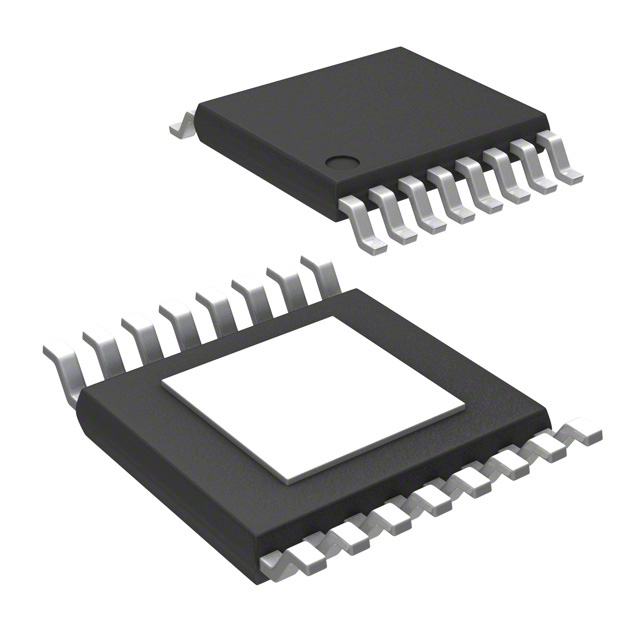How to solve the problem of abnormal resonance caused by resonant sensors?

Resonant sensor is a kind of common mechanical sensor, which can obtain the information of physical quantity by measuring the resonant frequency. However, in practical applications, resonant sensors may produce abnormal resonance, which will seriously affect the accuracy and reliability of the sensor. Therefore, it is very important to solve the problem of abnormal resonance generated by resonant sensors. This paper will introduce the working principle of resonant sensor and the reason of abnormal resonance, and put forward the method to solve the problem of abnormal resonance.
Ⅰ, The working principle of resonant sensor
A resonant sensor usually consists of a fixed elastic element and a movable mass block. When the external force is applied to the sensor, the mass block will be slightly displaced, thus changing the elastic energy of the elastic element. When the external force reaches a certain degree, the sensor will reach a resonance state, at which time the elastic element begins to vibrate, and the mass block will also resonate. The resonant frequency of the sensor depends on the elastic coefficient of the elastic element and the quality of the mass block, so the resonant frequency can be used to obtain the information of the physical quantity.
Ⅱ, The cause of abnormal resonance
The resonant frequency of a resonant sensor is usually a fixed value, but in some cases, the resonant frequency of the sensor may change abnormally, which is called abnormal resonance. The reasons for the abnormal resonance are mainly as follows:
1, External interference: When the sensor is in a resonant state, the external vibration or sound wave may interfere with the sensor, thereby changing the vibration characteristics of the sensor, resulting in the occurrence of abnormal resonance.
2, The ambient temperature change: the change in temperature will affect the elastic coefficient of the elastic element, thus changing the resonant frequency of the sensor. In some high-precision applications, even a small temperature change may lead to abnormal resonance.
3, The loosening or damage of the mass block: the loosening or damage of the mass block may cause the natural frequency of the sensor to change, resulting in abnormal resonance.
Ⅲ, The method to solve the abnormal resonance
In order to solve the abnormal resonance problem, a series of measures need to be taken:
1, Reduce external interference: by changing the installation position of the sensor or increasing external vibration isolation measures, you can reduce the impact of external interference on the sensor.
2, Control the ambient temperature: in high-precision applications, constant temperature control devices can be used to control the ambient temperature, thereby reducing the impact of temperature changes on the sensor.
3. Check the status of the mass block: regularly check whether the mass block of the sensor is loose or damaged, and replace or repair it in time.
4, Optimize the sensor design: by optimizing the structure and material of the sensor, you can improve the interference resistance and stability of the sensor, so as to reduce the probability of abnormal resonance.
5, Increase the filter: in the sensor signal processing, you can use low-pass filter and other ways to filter the abnormal resonance signal, so as to improve the accuracy and reliability of the sensor.
Ⅳ. Conclusion
Abnormal resonance is a common problem faced by resonant sensors, which may seriously affect the accuracy and reliability of the sensor. In order to solve the abnormal resonance problem, a series of measures need to be taken, including reducing external interference, controlling the ambient temperature, checking the state of the mass block, optimizing the sensor design and adding filters. Through these measures, the problem of abnormal resonance generated by resonant sensors can be effectively solved, and the application performance and reliability of sensors can be improved.
Die Produkte, an denen Sie interessiert sein könnten
 |
TPCM-2.4-5 | CMC 2.41MH 5A 2LN TH | 6894 More on Order |
 |
AA53002-015 | XFRMR TOROIDAL 300VA CHAS MOUNT | 8352 More on Order |
 |
62045-P2S02 | XFRMR TOROIDAL 10VA CHAS MOUNT | 2430 More on Order |
 |
62044-P2S02 | XFRMR TOROIDAL 10VA CHAS MOUNT | 6048 More on Order |
 |
62043-P2S02 | XFRMR TOROIDAL 10VA CHAS MOUNT | 5472 More on Order |
 |
62025-P2S02 | XFRMR TOROIDAL 5VA CHAS MOUNT | 3924 More on Order |
 |
62021-P2S02 | XFRMR TOROIDAL 5VA CHAS MOUNT | 5058 More on Order |
 |
62075-P2S02 | XFRMR TOROIDAL 35VA CHAS MOUNT | 7308 More on Order |
 |
70074K | XFRMR TOROIDAL 35VA THRU HOLE | 6840 More on Order |
 |
70054K | XFRMR TOROIDAL 15VA THRU HOLE | 4716 More on Order |
 |
70041K | XFRMR TOROIDAL 10VA THRU HOLE | 2826 More on Order |
 |
70031K | XFRMR TOROIDAL 7VA THRU HOLE | 8658 More on Order |
 |
70024K | XFRMR TOROIDAL 5VA THRU HOLE | 8748 More on Order |
 |
70015K | XFRMR TOROIDAL 3.2VA THRU HOLE | 7578 More on Order |
 |
70014K | XFRMR TOROIDAL 3.2VA THRU HOLE | 5562 More on Order |
 |
70002K | XFRMR TOROIDAL 1.6VA THRU HOLE | 5040 More on Order |
 |
62015-P2S02 | XFRMR TOROIDAL 3.2VA CHAS MOUNT | 3780 More on Order |
 |
70025K | XFRMR TOROIDAL 5VA THRU HOLE | 4068 More on Order |
 |
62024-P2S02 | XFRMR TOROIDAL 5VA CHAS MOUNT | 4824 More on Order |
 |
62060-P2S02 | XFRMR TOROIDAL 25VA CHAS MOUNT | 23778 More on Order |
 |
70005K | XFRMR TOROIDAL 1.6VA THRU HOLE | 7218 More on Order |
 |
AC1050 | CURR SENSE XFMR 50A T/H | 7362 More on Order |
 |
AC1015 | CURR SENSE XFMR 15A T/H | 5166 More on Order |
 |
AC1025 | TRANSFORMER CURRENT 25.0 AMP | 4230 More on Order |









